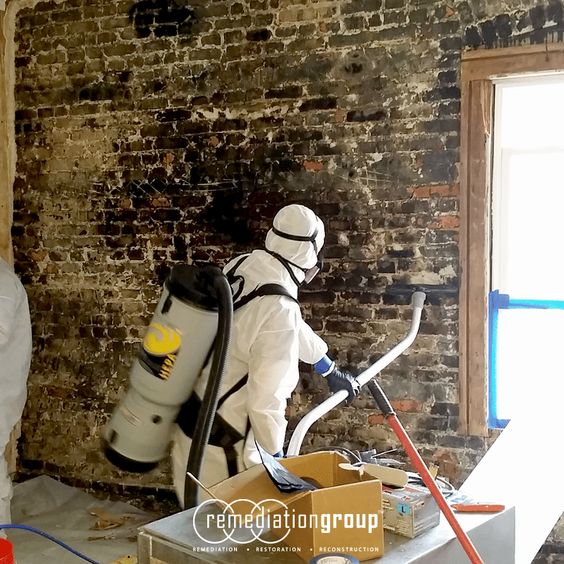Mold toxicity is a serious health concern that can affect individuals exposed to mold spores over time. Mold, a type of fungus, thrives in damp and humid environments, and its spores can cause a range of health issues when inhaled or ingested. Understanding the warning signs of mold toxicity is crucial for early detection and treatment. This article will explore the ten most common signs of mold toxicity, helping you recognize and address this hidden threat.
Allergy Symptoms
One of the first signs of mold toxicity is the development of allergy symptoms. These can include sneezing, nasal congestion, wheezing, irritated eyes, coughing, sore throat, and lung irritation. Mold spores can trigger allergic reactions in sensitive individuals, leading to persistent symptoms that resemble those of seasonal allergies. If you notice these symptoms, especially in damp or mold-prone areas, it may be a sign of mold exposure.
Respiratory Issues
Mold exposure can lead to significant respiratory problems. Symptoms such as shortness of breath, chronic cough, sinus congestion, and postnasal drip are common among those affected by mold toxicity. In severe cases, mold can exacerbate asthma symptoms or lead to the development of new respiratory conditions like hypersensitivity pneumonitis. If you experience persistent respiratory issues, it is essential to investigate potential mold exposure in your environment.
Also Read: Living with Purpose: Why You Feel Lost and How to Find Your Way Back
Skin Irritation
Skin irritation is another common sign of mold toxicity. Exposure to mold spores can cause rashes, itching, burning sensations, and persistent skin irritation. These symptoms can be particularly bothersome and may not respond well to typical skin treatments. If you develop unexplained skin issues, consider the possibility of mold exposure as a contributing factor.
Neurological Symptoms
Mold toxicity can also affect the nervous system, leading to a range of neurological symptoms. These can include headaches, dizziness, brain fog, anxiety, depression, and even more severe conditions like tremors and seizures. The mycotoxins produced by mold can cross the blood-brain barrier, causing inflammation and oxidative damage to brain tissues. If you experience unexplained neurological symptoms, it is crucial to consider mold exposure as a potential cause.
Also Read: The 48 Laws of Power: A Complete Guide to Robert Greene’s Masterpiece on Strategy and Influence
Digestive Problems
Digestive issues are another warning sign of mold toxicity. Symptoms such as nausea, vomiting, diarrhea, abdominal bloating, and food sensitivities can occur due to mold exposure. These symptoms can be particularly challenging to diagnose, as they often mimic other gastrointestinal conditions. If you have persistent digestive problems without a clear cause, mold toxicity should be considered.
Fatigue and Weakness
Chronic fatigue and weakness are common complaints among those suffering from mold toxicity. The body’s constant battle against mold spores and mycotoxins can lead to a state of chronic inflammation and immune system dysregulation, resulting in persistent fatigue and a general feeling of weakness. If you find yourself unusually tired despite adequate rest, mold exposure might be the culprit.
Also Read: Smart Money Management: A Simple Guide to Budgeting, Saving, and Giving Back
Cognitive Impairment
Mold toxicity can significantly impact cognitive function. Symptoms such as difficulty concentrating, memory problems, brain fog, and reduced ability to learn new information are common among those exposed to mold. These cognitive issues can affect daily life and work performance, making it essential to address mold exposure promptly.
Mood Changes
Mood changes are another potential sign of mold toxicity. Exposure to mold can lead to anxiety, depression, mood swings, irritability, and other psychiatric symptoms. The inflammation and oxidative stress caused by mycotoxins can affect neurotransmitter function, leading to these mood disturbances. If you notice significant changes in your mood or mental health, consider the possibility of mold exposure.
Also Read: Level Up Your Life: Step-by-Step Guide to the Solo Leveling System
Immune System Dysfunction
Mold toxicity can weaken the immune system, making individuals more susceptible to infections and other health issues. Chronic exposure to mold spores can lead to immune dysregulation, resulting in frequent illnesses, slow recovery times, and heightened sensitivity to other allergens. If you experience frequent infections or have a compromised immune system, it is crucial to address potential mold exposure.
Conclusion
Recognizing the warning signs of mold toxicity is essential for protecting your health and well-being. If you suspect mold exposure, it is important to take immediate action by addressing the source of mold growth and seeking professional medical advice. By understanding and addressing mold toxicity, you can safeguard your health and prevent long-term complications.

